Concept
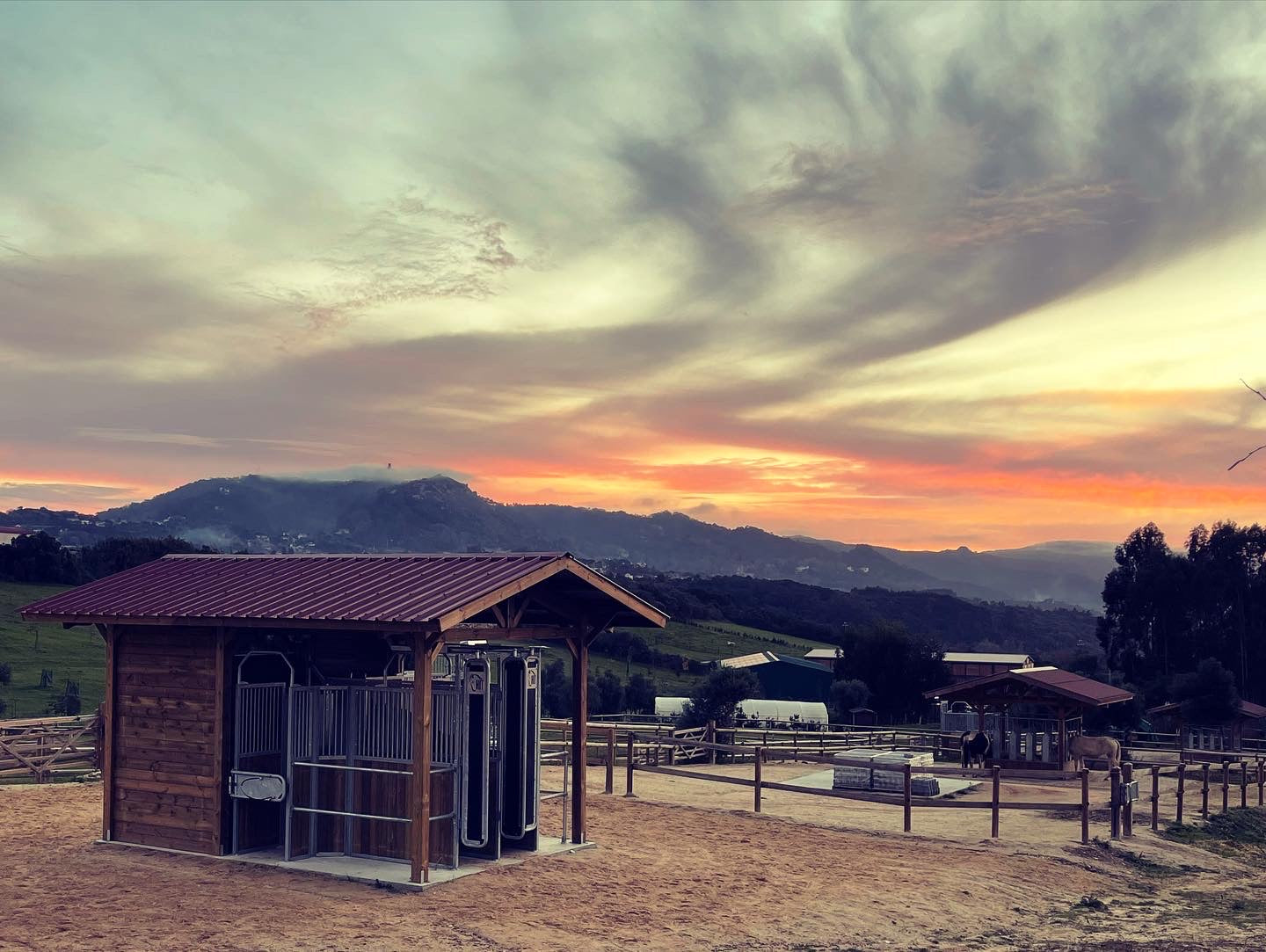
How does the Lourel active team work?
Understanding the “Horse Time Budget”
- 60% of his time: feeding and moving in pastures.
- 20 to 30% of its time resting or interacting with play or grooming with these conspecifics.
- 10% for moving from space to space.
- 4 to 8% monitor their environment.
- The rest for other activities.
How does the active stable meet my horse's primary needs?
-
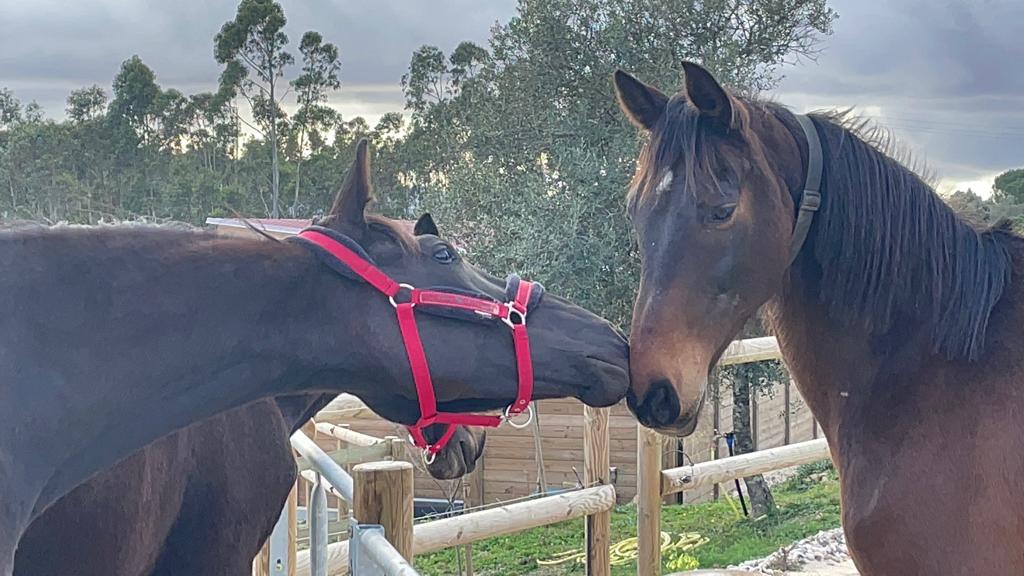
Horse welfare
Article “Integration of the horse into a group”: Read hereAnimal welfare is an important subject and it starts with ensuring that your horse's basic needs are met. Whether a leisure, retired or sport horse, there is no good rider-horse relationship if the horse suffers from an unsuitable lifestyle. Integration into the group is the first step and is done little by little so that your horse can then enjoy a very pleasant living environment. The study and implementation of a tailor-made diet for each horse is then carried out. Learning about electronic machines happens little by little, allowing stimulation and occupation throughout the day.
-
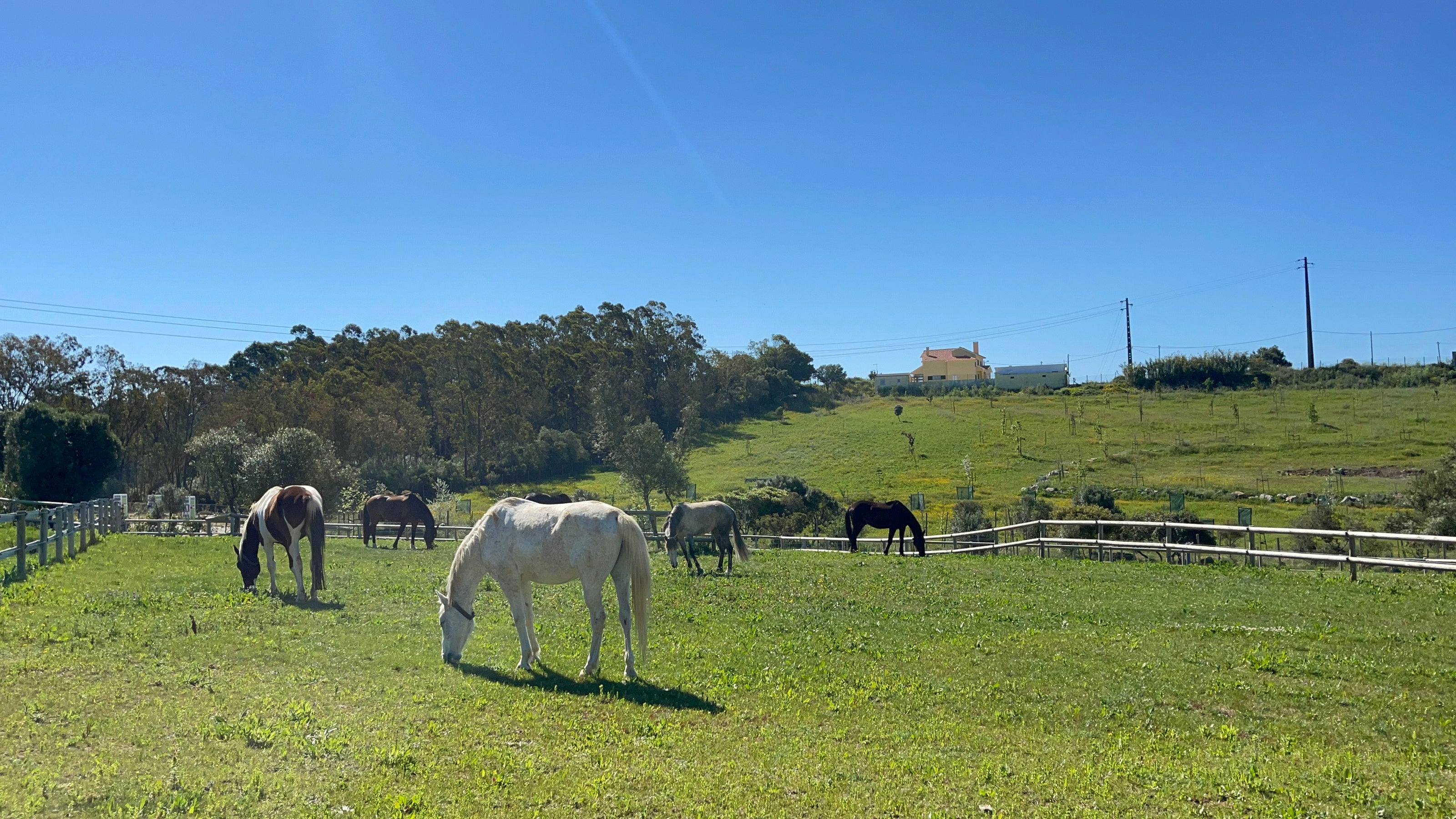
Why this accommodation?
Article “Horse congestion and locomotion”: Read hereThe horse is a gregarious animal, it needs to live in groups. Social contact is essential for his mind. Social grooming, integration into groups, interactions between them... all these behaviors help reduce stress. A horse flourishing in its environment will then be more available to work, a reduction in stress also reduces the risk of diseases such as stress colic, premature aging of the animal, congestion due to lack of movement, the risks of gastric ulcer due to chronic stress or poor diet and a reduction in “tics”. A considerable advantage in this type of accommodation is that your horse is free to walk all day, which is an asset for its health.
-
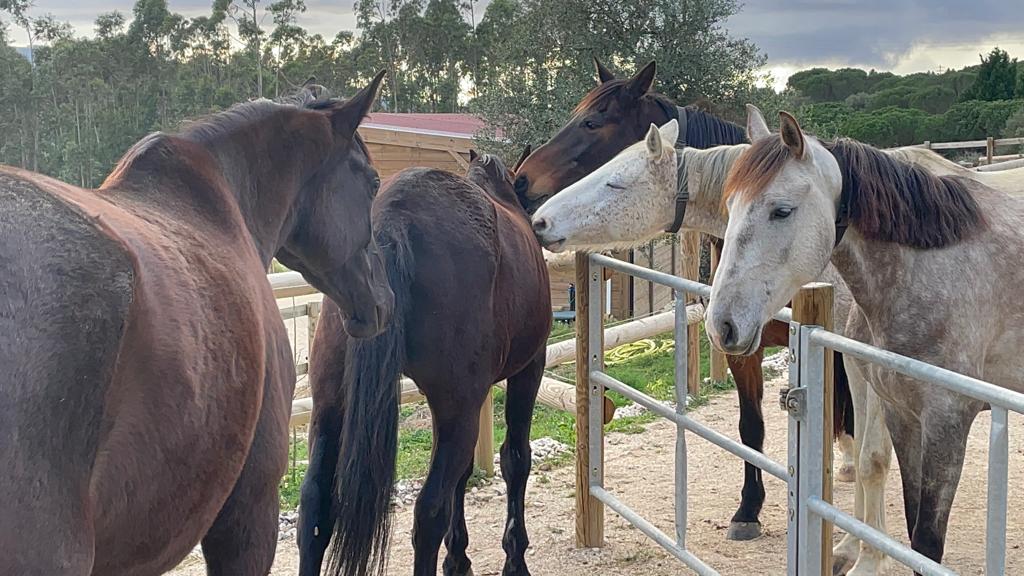
Structured and stimulating spaces
Find out more about the equipment of the active Lourel stable:A thoughtful layout of their accommodation provides them with spaces
structured to move around day and night. The points of interest of
the active stable are spaced so as to generate maximum locomotion. THE
mixing of age classes in the group benefits young horses who
thus learn the social subtleties of the species through contact with the oldest
while the latter remain more alert and fitter! Being able to move around and move whenever they want is a major asset of this system for their physical and mental well-being. -
Advantages of different soils
Article “Horse proprioception and locomotion”: Read here“Proprioception and locomation”
The different stabilized ground coverings allow horses to walk in a hilly area and provide good maintenance of muscular physical condition and good quality of the sole of the foot. Also advantageous, the varied floors allow the maintenance of good proprioception and better quality and elasticity of tendon and ligament tissues. Horses are no longer subject to congestion due to too prolonged static rest.
-
Nutrition and digestive system
Article “Nutrition and digestive system of the horse”: Read hereOur active stable offers for each new horse a tailor-made assessment with a professional equine nutritionist, to establish the best diet for your horse while respecting its needs. The assessment will be done based on their weight, their activity, their general state of health, their age, their energy needs. It can then be modulated with the stable's on-board computer to set up the horse's exact feeding plan, giving it access, thanks to its transponder collar, to the different equipment and spaces to feed when instinctively it
wish. -
Facilities
- Comfortable dormitories with comfortable mattresses and misters to keep you cool in summer and to prevent excess flies.
- Sand rolling area.
- Large green paddocks.
- Access to unlimited hay areas and DAC and DIF (equipment for grains, alfalfa or treated hay depending on its needs).
- Access to an 18 meter lunging ring.
- A working quarry of 40*20 (Amortisol geotextile soil).
- Access to numerous walking paths in Sintra surrounded by eucalyptus forests.
- A treatment area, grooming rooms, a tack room, a cold and hot water shower area.
- A clubhouse.
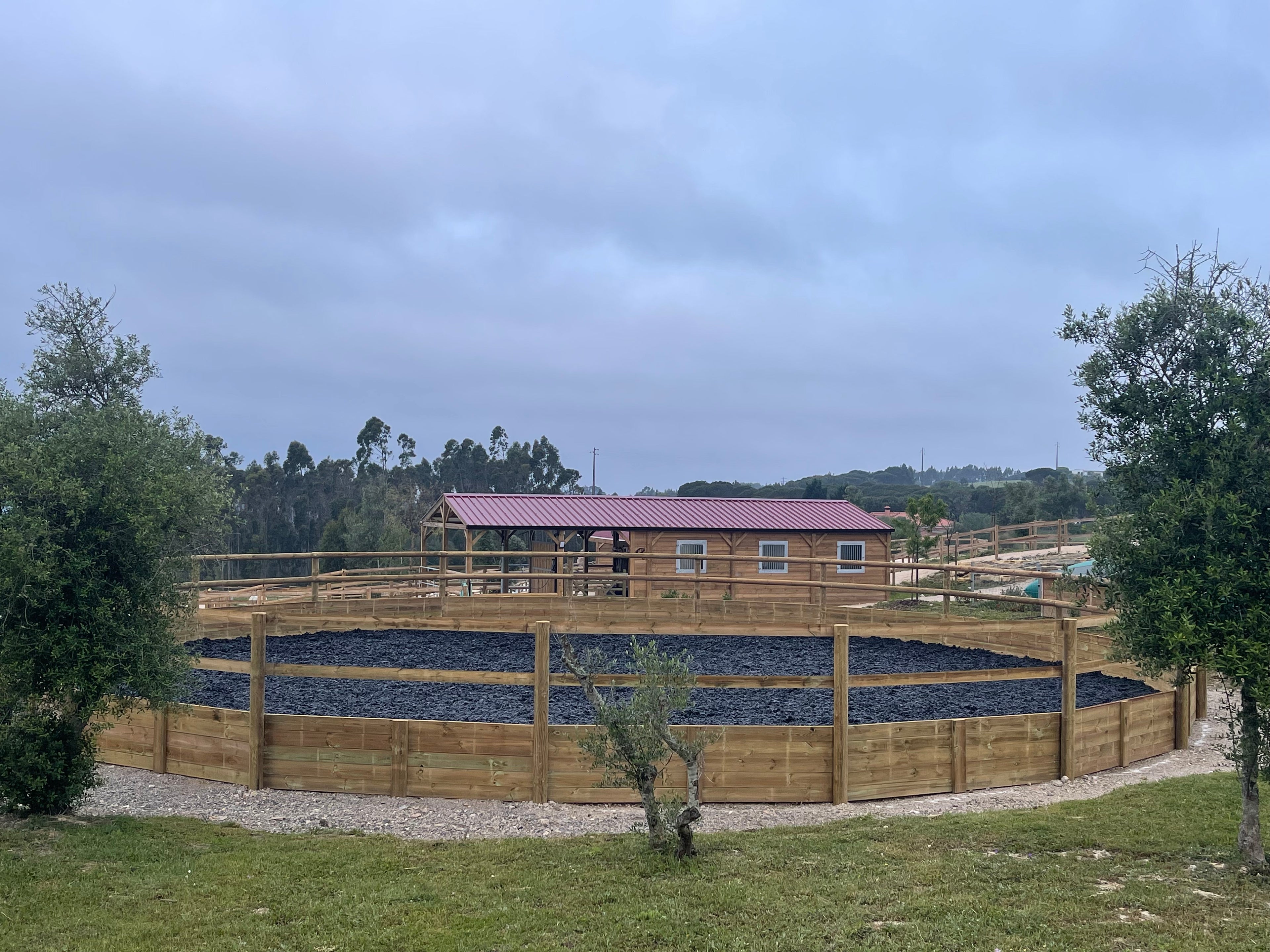
18 meter Amortisol lunging ring
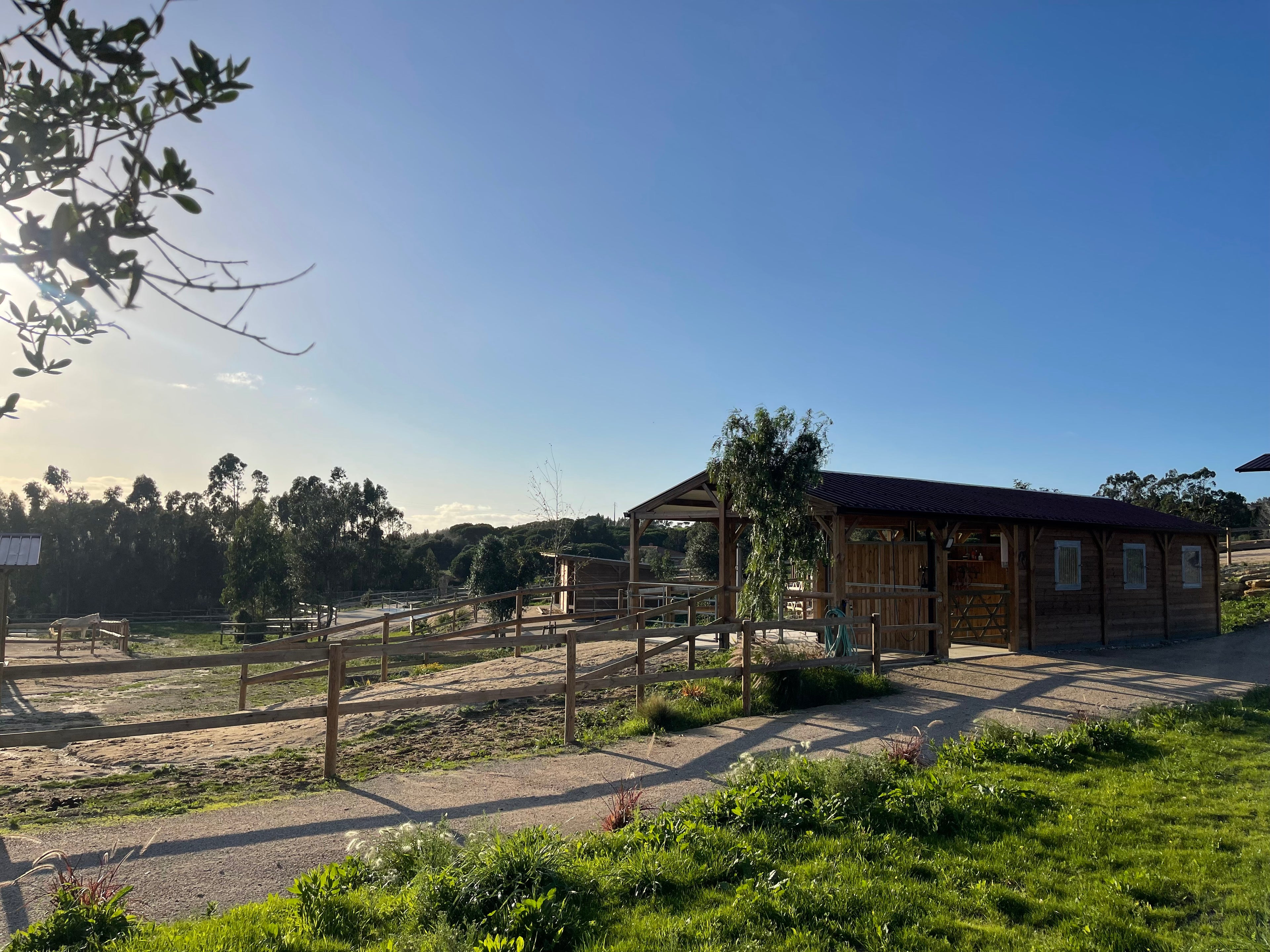
Integration and care space
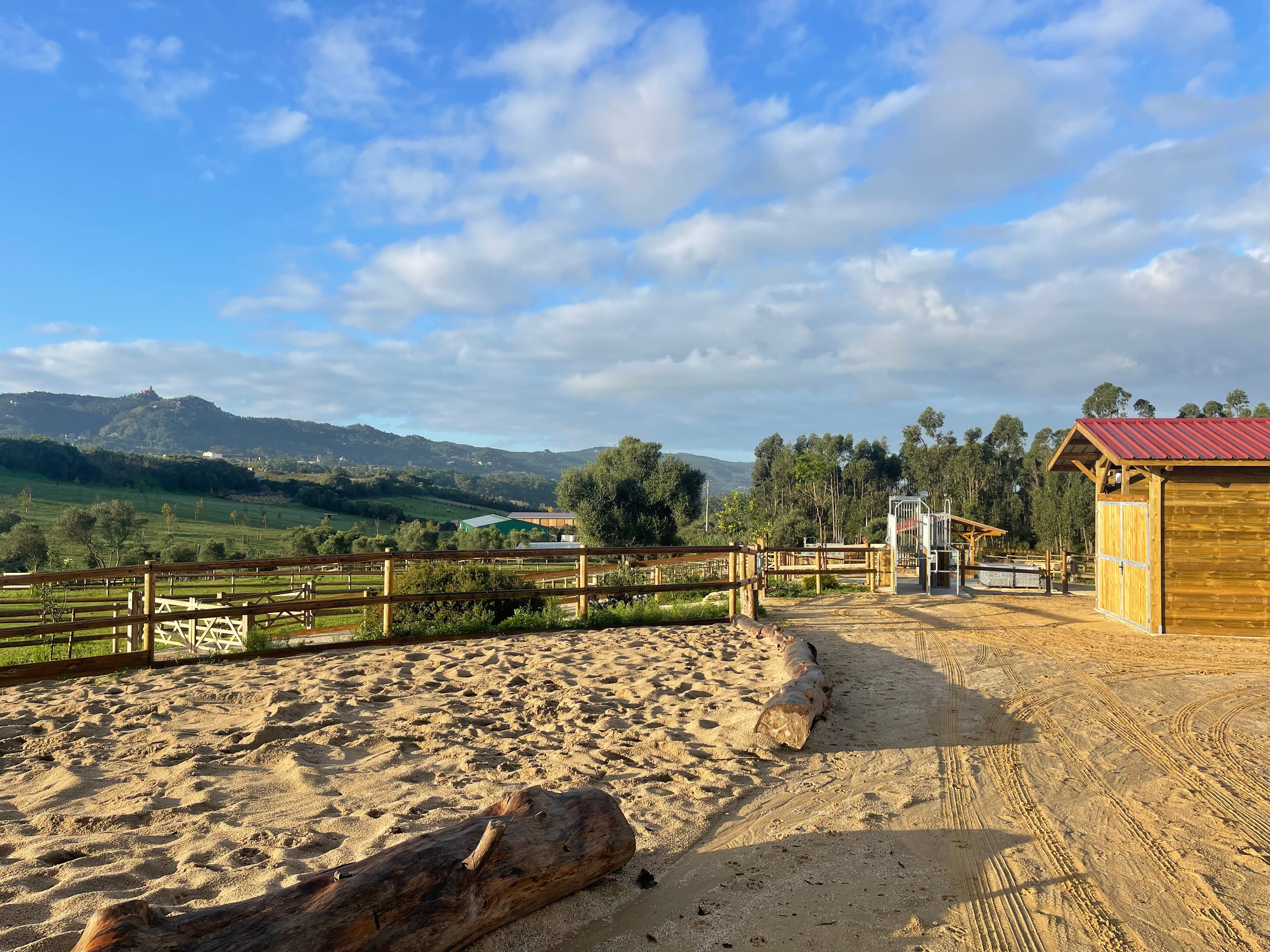
Sand play area and selective hay door.
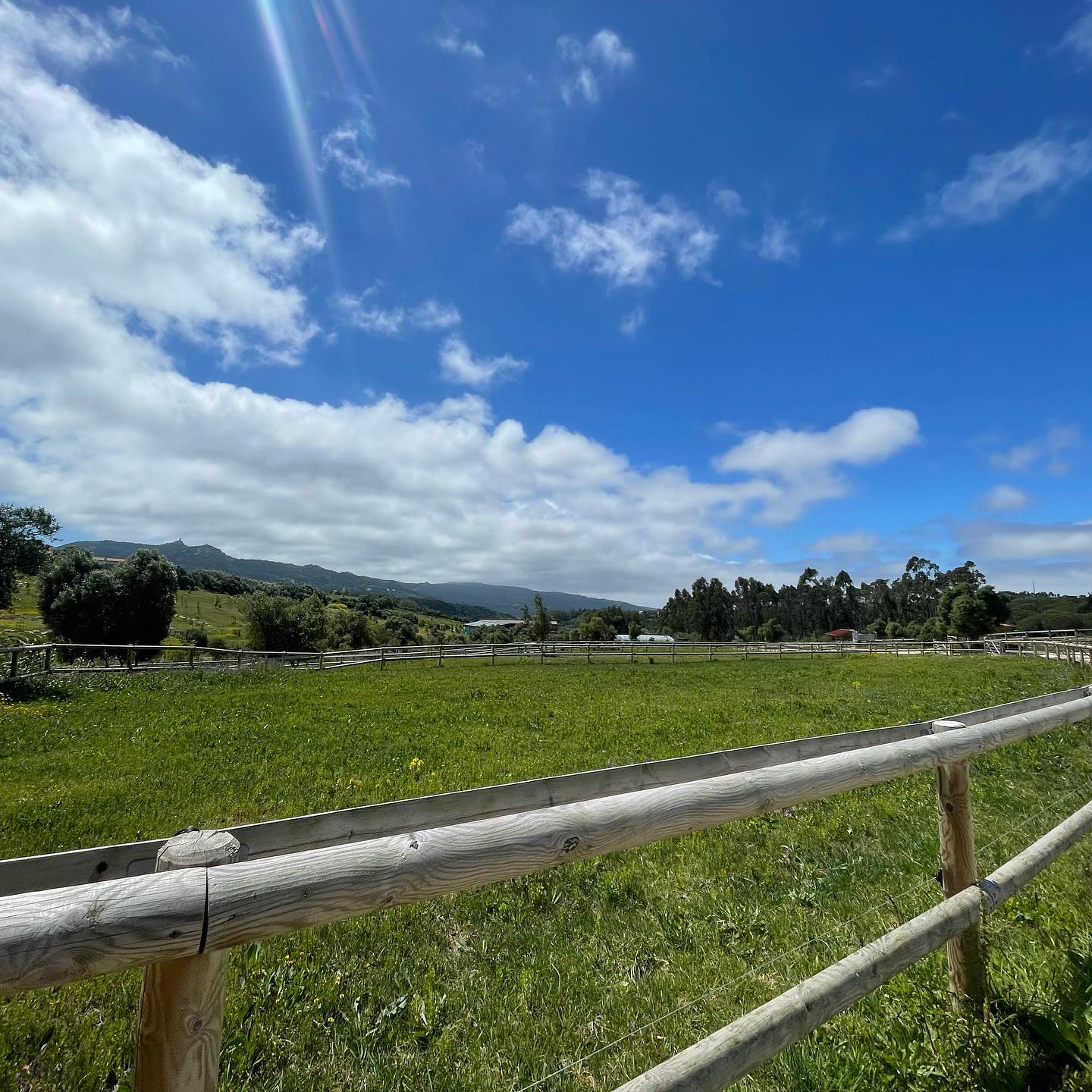
Paddocks
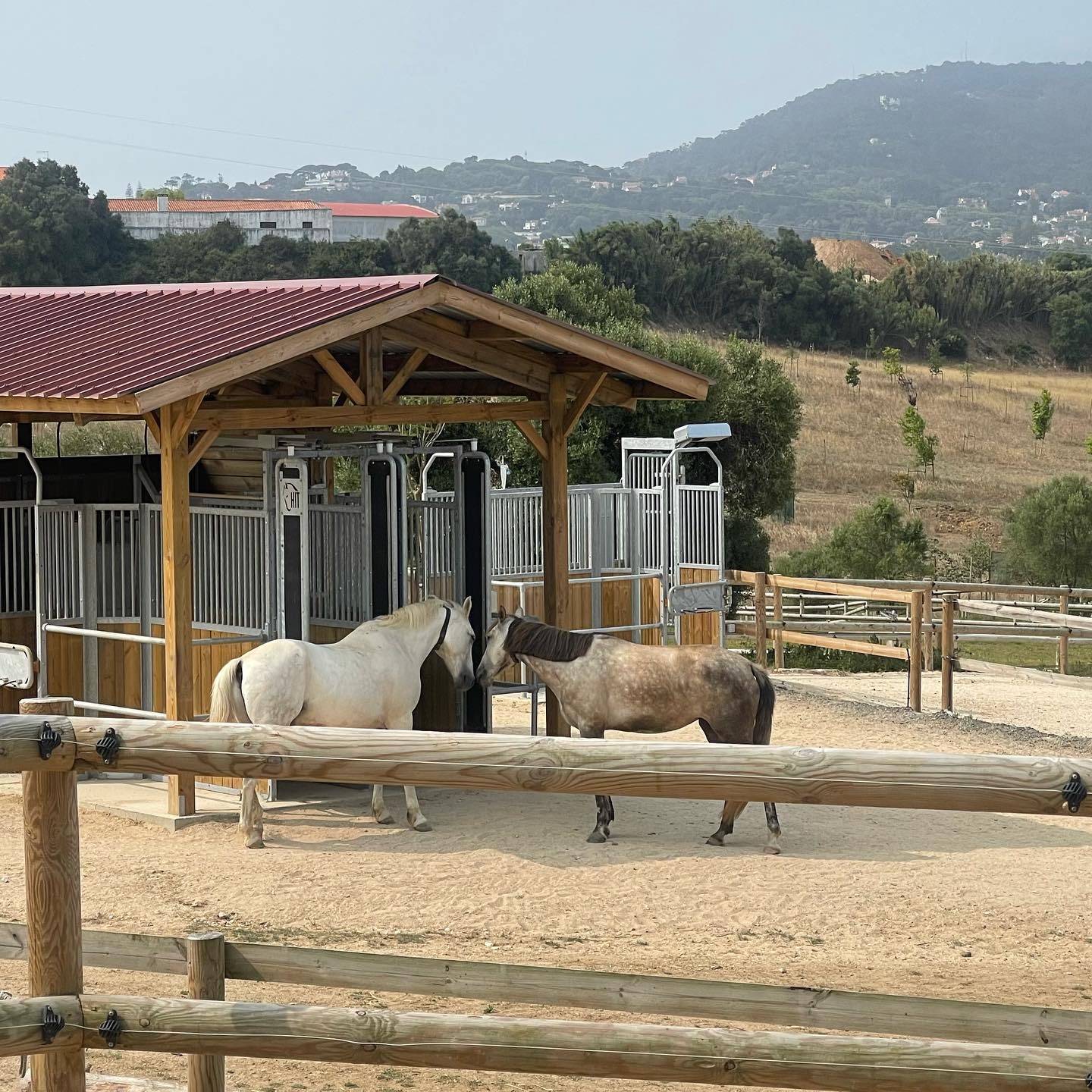
HIIT equipment, supplies and stable plan by HORSE STOP.


